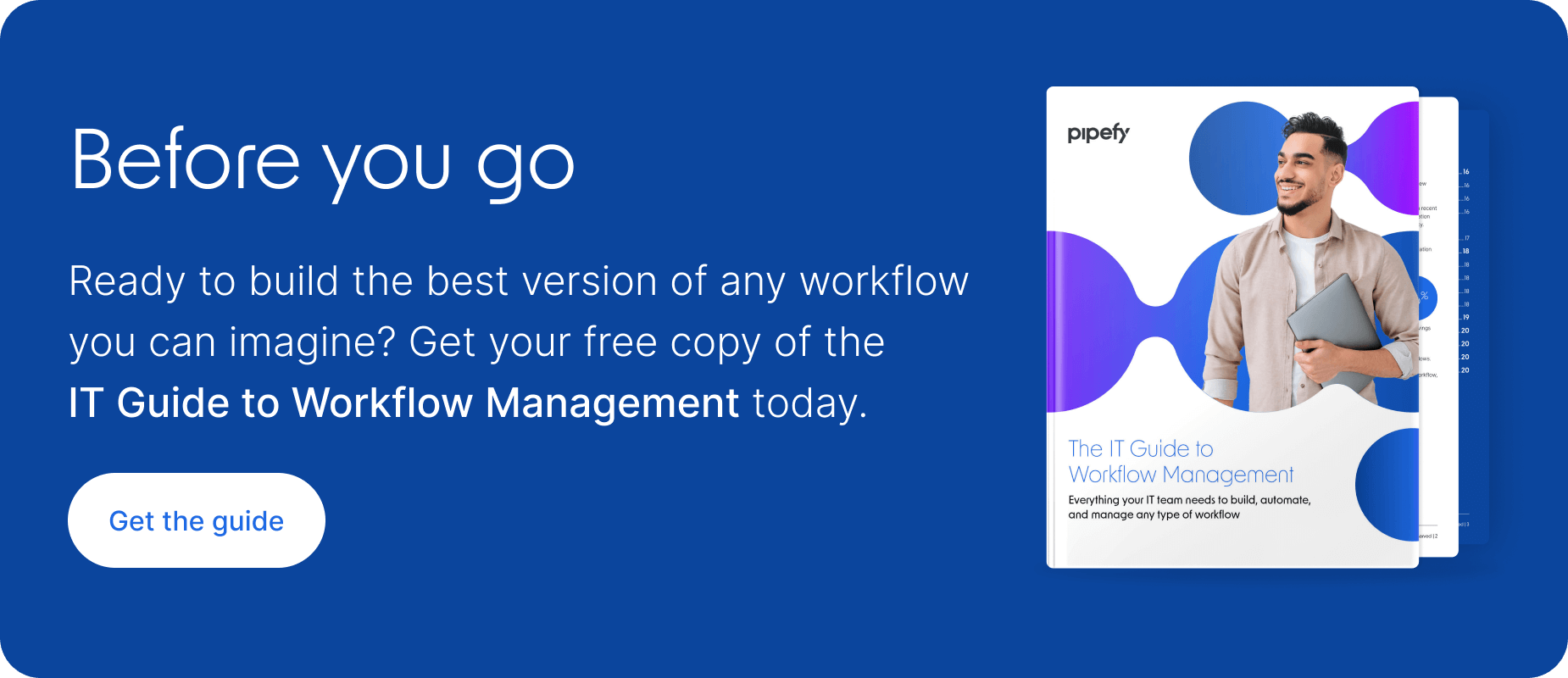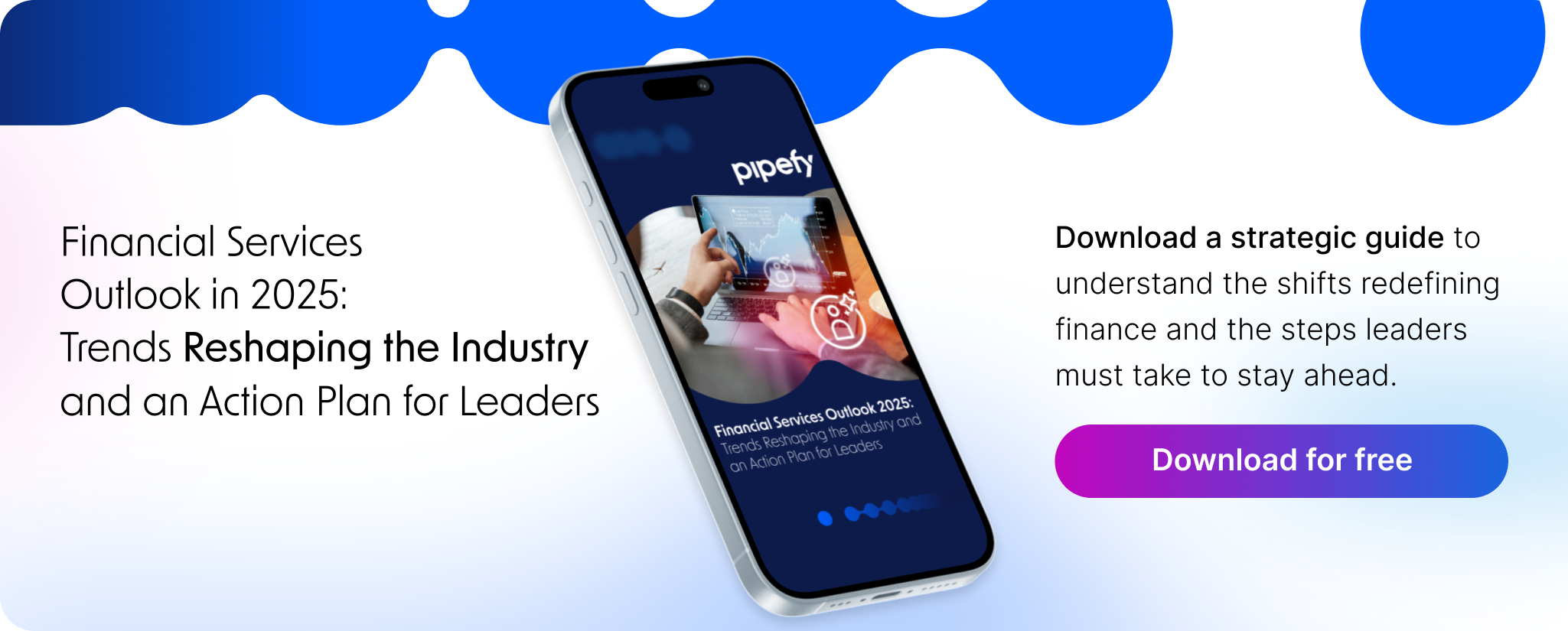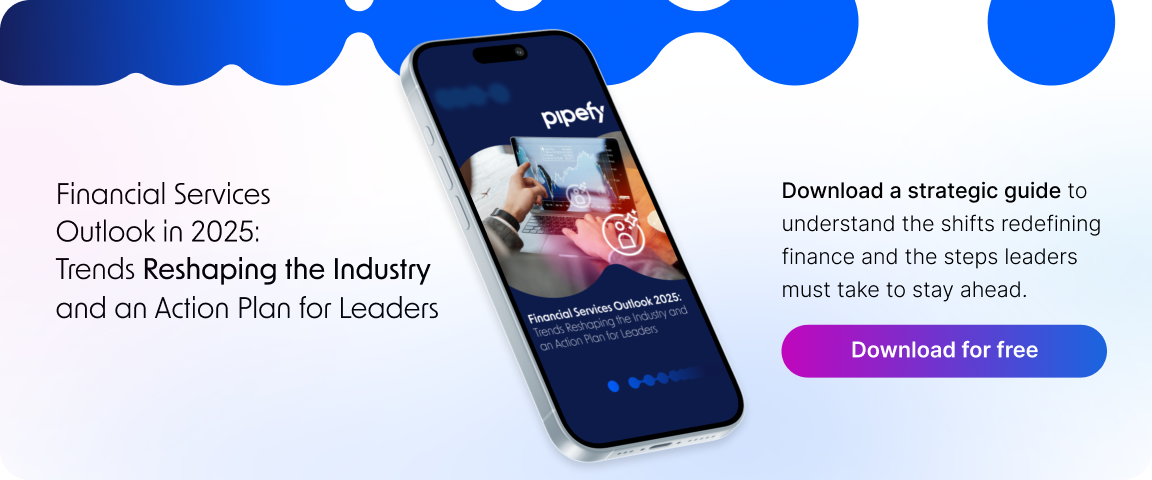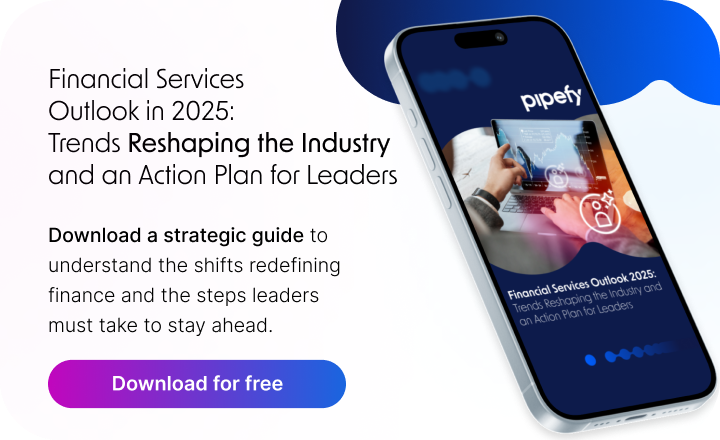
Introduction
In today’s digital-first landscape, customer onboarding isn’t just a support process — it’s a competitive differentiator. Whether you’re a SaaS company, a service provider, or a financial institution, delivering a fast, efficient, and personalized onboarding experience is essential to customer satisfaction and long-term retention.
With personalized templates powered by AI Agents, businesses can build scalable, intelligent, and customized journeys for each new client. These agents enable automation without losing the human touch — a game-changer for companies embracing agentic workflows and advanced Business Process Automation (BPA).
In this article, we’ll explore how AI-driven personalization enhances customer onboarding, the structure behind a successful workflow, and how concepts like BPM, KYC, KYB, and automation intersect to deliver consistent, compliant, and delightful experiences.

Why Customer Onboarding needs to be smarter (and personalized)
First impressions matter. That’s why customer onboarding — the process of guiding new clients through initial setup, training, or service activation — needs to go beyond generic checklists and emails.
Traditional onboarding models often fail to adapt to customer-specific contexts. A startup may need quick wins and basic integrations, while an enterprise client might require custom compliance checks and stakeholder involvement. Without personalization, both journeys become inefficient.
This is where personalized templates come into play. Instead of creating onboarding workflows from scratch, teams can use pre-built blueprints — enhanced with dynamic fields and conditional logic — that automatically adjust to client type, industry, and goals. When powered by AI Agents, these templates transform into intelligent, self-adjusting flows.
What makes AI Agents crucial to onboarding?
AI Agents are autonomous assistants embedded in workflows to perform, recommend, or validate actions based on business rules, historical data, and real-time inputs. Within onboarding, they can:
- Auto-fill customer information
- Trigger next steps based on document status
- Suggest best practices or documentation
- Validate data for compliance (e.g., KYC/KYB)
- Escalate issues to human teams when needed
For example, in the Pipefy Personalized Customer Onboarding Template, one AI Agent activates as soon as a customer card is created — filling in fields and checking for missing data. Another monitors workflow transitions and suggests follow-up actions based on similar client journeys.
By reducing manual work, AI Agents help teams focus on relationship building, not just task management.
The role of Agentic Workflows
A true digital onboarding process leverages an agentic workflow — a system where agents (human and AI) collaborate across a structured flow of tasks. This model allows multiple types of agents to interact autonomously while maintaining oversight and accountability.
In this setup:
- AI Agents handle repetitive, rules-based tasks
- Human agents step in for decision-making, empathy, or exceptions
- The system ensures data integrity and compliance through clear governance
This blend of automation and human judgment creates a faster, safer, and more adaptive customer onboarding process.
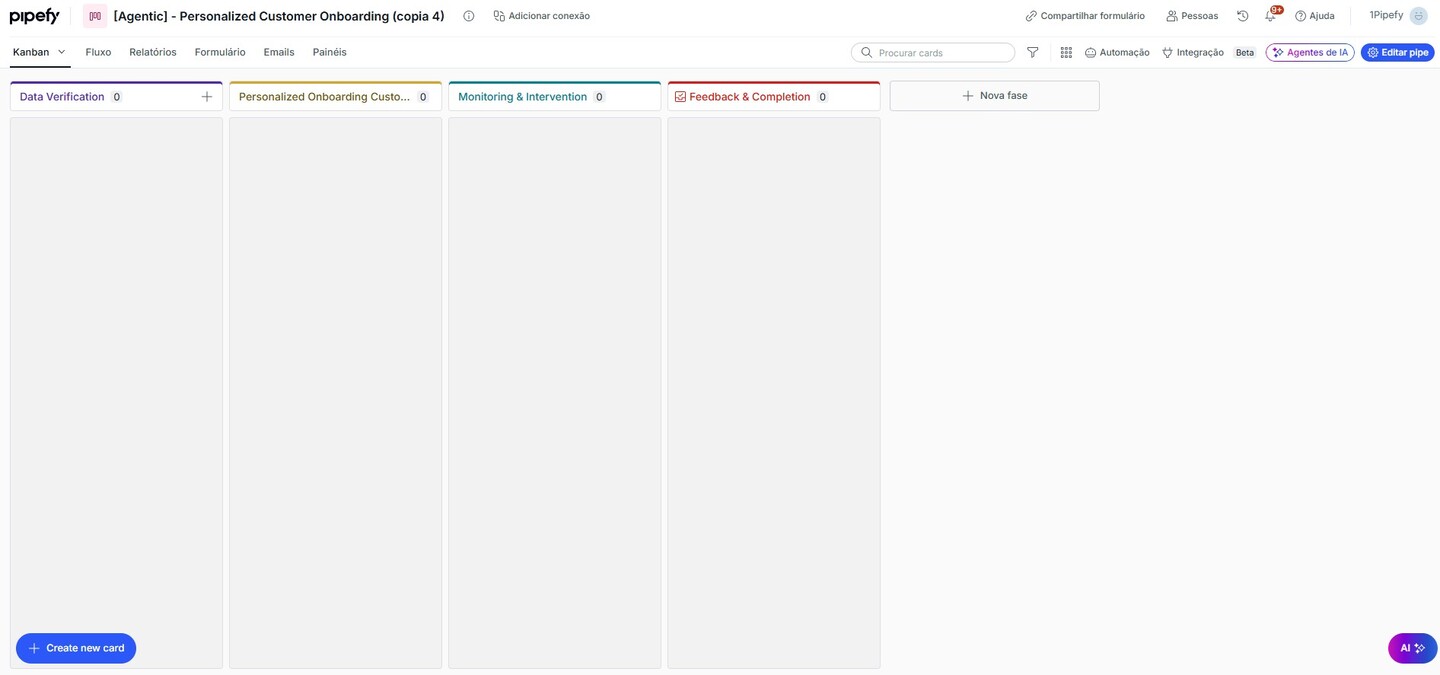
Key phases of an AI-Driven customer onboarding workflow
Here’s how a personalized customer onboarding journey unfolds using a template enriched with AI Agents:
1. Data Verification
Before anything begins, agents ensure all contact and service data is accurate. If documents are missing, the AI notifies the customer and alerts the team.
2. Personalization Engine
Using client data, AI tailors the onboarding steps. A startup might skip enterprise compliance layers; a high-risk client triggers enhanced due diligence via KYB.
3. Monitoring & Intervention
As the workflow progresses, AI Agents track timing, flag blockers, and predict potential churn points — enabling human agents to act proactively.
4. Feedback and Optimization
At the end, agents collect feedback and suggest process improvements based on journey performance across similar customer profiles.
This modular, agent-driven structure ensures that no two onboarding experiences are alike — yet all remain efficient and compliant.
Real-World use cases for personalized customer onboarding
- SaaS companies: Guide new users through setup with auto-personalized walkthroughs and self-service help centers, triggered by agent behavior.
- Financial institutions: Automate KYC/KYB checks, document uploads, and approval flows with audit trails.
- Retail businesses: Create tailored loyalty program introductions based on purchasing behavior and segmentation.
In every scenario, the combination of personalized templates, AI Agents, and agentic workflows delivers a scalable experience that feels custom-made.
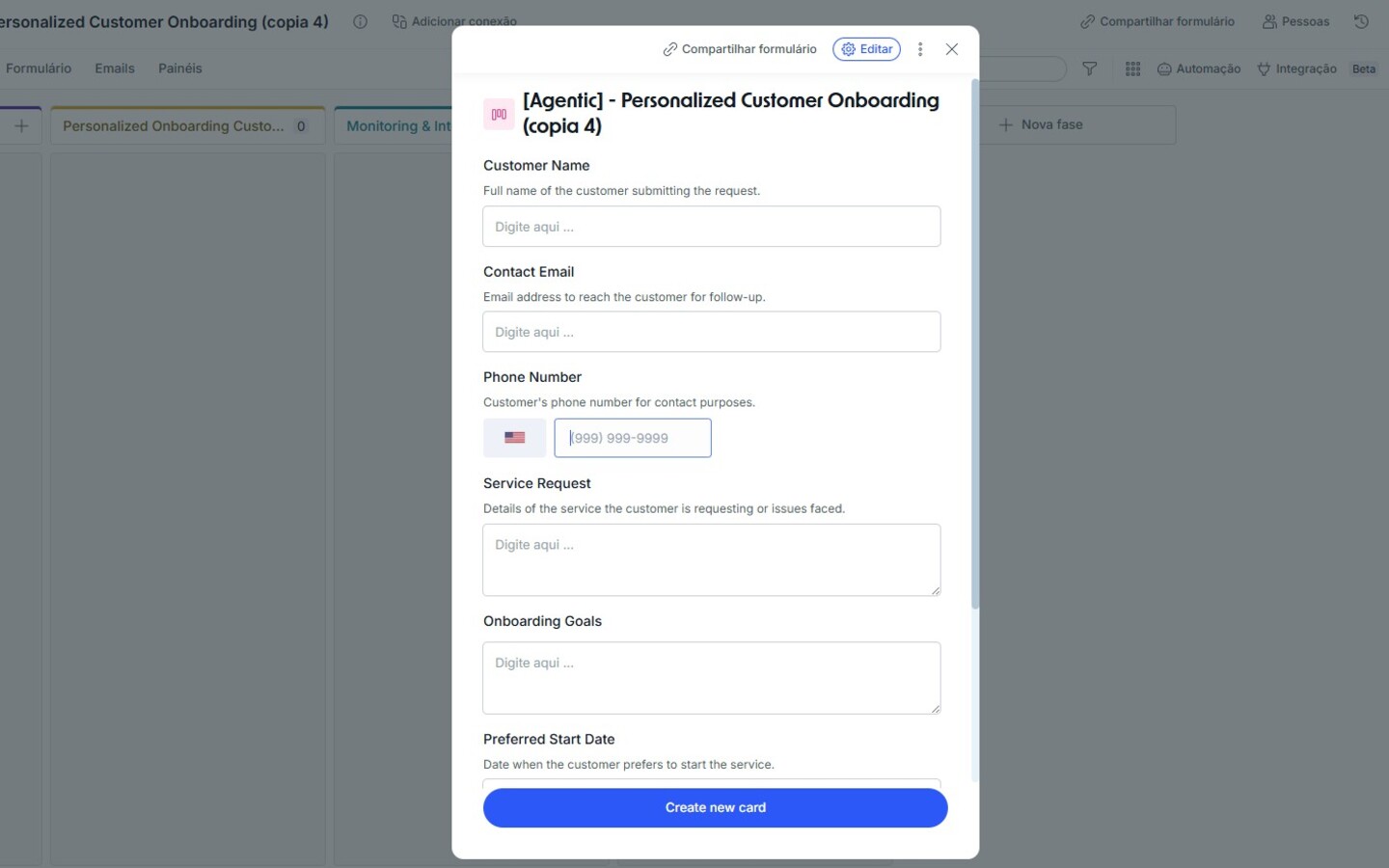
Benefits at a Glance
| Benefit | Impact |
| Faster Onboarding | Up to 4x faster execution with automation |
| Reduced Manual Work | 80% of data entry handled by AI Agents |
| Higher Satisfaction | Tailored journeys improve NPS and retention |
| Better Compliance | KYB/KYC integration ensures audit-readiness |
| Continuous Improvement | AI feedback loops suggest future refinements |
Empower Your Team with AI-Powered Onboarding
Customer onboarding doesn’t need to be manual, repetitive, or generic. With personalized templates, AI Agents, and agentic workflows, your team can deliver seamless, scalable experiences — without writing a single line of code.
This approach empowers teams across industries to automate with intelligence, ensuring every customer feels seen, supported, and set up for success from day one.
Ready to build smarter onboarding workflows?
Click the button below to access the free Pipefy Personalized Customer Onboarding Template and start customizing your onboarding experience today with the power of AI Agents.







